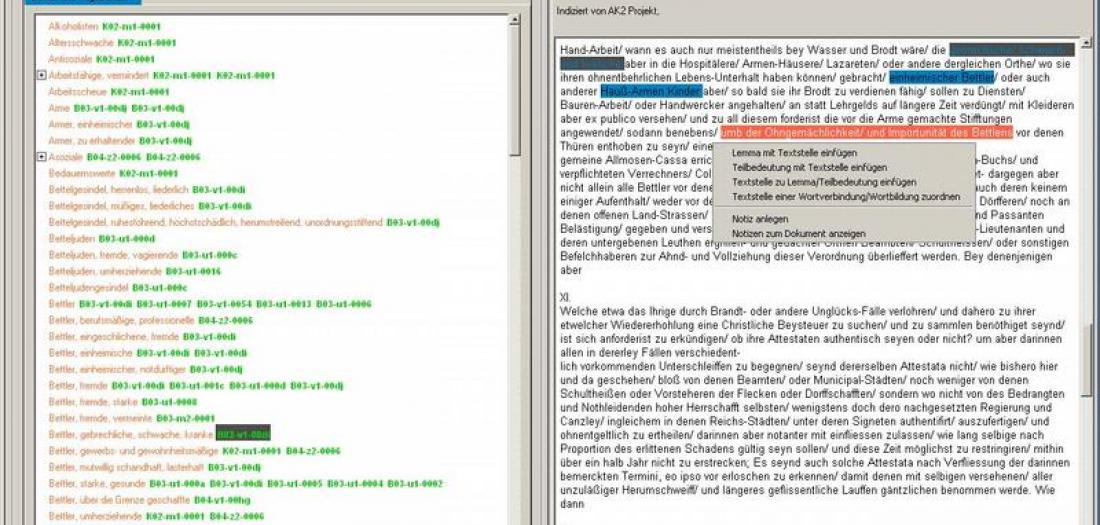e-Humanities at the University of Trier
The Collaborative Research Center “Foreignness and Poverty” is developing a virtual research platform
11.06.2008 | General, Project News

Since 2004, specialists and computer scientists have been developing pioneering IT solutions for the humanities that give both individual and cooperative scientific work a new level of effectiveness and quality. To organize the collaboration in the research network, a network-based, integrated research environment is designed and implemented, which supports the humanities scholars using state-of-the-art IT technology from inventory, through the analysis and evaluation of their materials, to the publication of the research results.
Since the end of 2005, around 150 users have been entering their digital data, such as documents, archival administrative records, paintings, photographs and much more, into the database. So far there are over 15,000 documents and the number is increasing every day. The virtual research environment enables scientists to work systematically and purposefully through the R&D, regardless of their whereabouts. In addition to the components for inventorying your research data, it also offers tools for content-related and semantic in-depth analysis as well as for corpus formation. There are also various export options that are used to process the data for publications.
The differentiated data and user management protects the rights of the authors and ensures compliance with data protection regulations, e.g. for personal information from archives. At the same time, the rights management enables a high degree of flexibility in the formation of working groups and teams of authors as well as in the exchange of data. Due to the web-based client-server architecture, which accesses a relational database management system, the data is always up-to-date and simultaneously available at all workstations, so that transparency is guaranteed for everyone involved. In addition, this form of collecting data and evaluations also serves to secure long-term treasures such as research work that other researchers can access. Therefore, the data is kept in a platform-independent XML structure.
The R&D system can be adapted to the individual needs of each research association. Two projects of the Mainz Academy of Sciences and Literature use the EDP system. The project “Corpus of Sources for the Medieval History of the Jews in the Reich” has been using the system for cataloging medieval documents and other text sources, some of which have come down to us in Hebrew, since the beginning of 2007. The project “Research on Ancient Slavery” has been building an image database with the software since summer 2007.
An editing and publication component for print and online publications is in preparation to complete the FuD system. In addition, an archive server is being set up for the long-term backup and provision of primary and research data. In this way, future research projects benefit from the virtual research platform, as they can access the constantly growing pool of research data on the subject of “strangeness and poverty from antiquity to the present”.
Link: FuD Uni Trier

